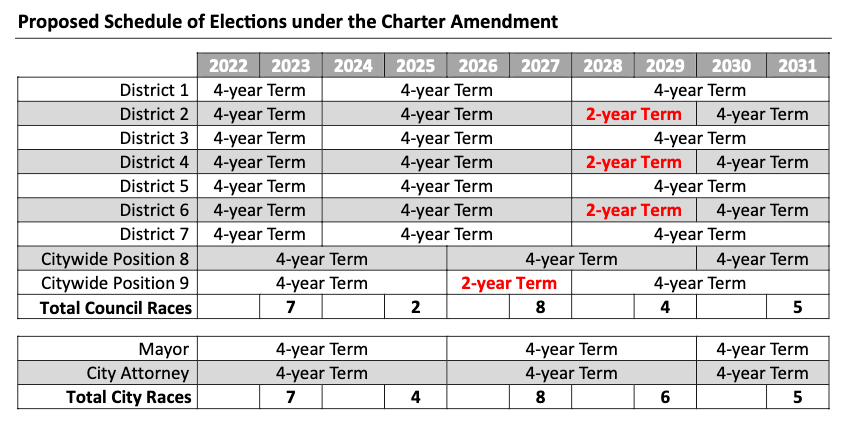Seattle City Councilmember wants to stagger election years

“I Voted” stickers at the King County Elections headquarters in Renton on Tuesday, Nov. 2, 2021. (Jovelle Tamayo for Crosscut)
Seattle City Councilmember Teresa Mosqueda wants to shift future Council elections to limit mass turnover of councilmembers and the brain drain of institutional knowledge that comes with it.
The City Council comprises seven district representatives and two citywide at-large positions, all of which are four-year terms. The district elections and at-large elections are held two years apart.
Mosqueda is proposing staggering elections instead of electing all seven district positions at once, which Seattle voters have done since 2015. In addition, she wants to move election years for one of the Council’s two at-large positions.
This November’s district Council elections illustrate how the current system sets Seattle up for potential major change every four years.
This year, only three of seven district councilmembers are seeking reelection, guaranteeing at least four new faces in City Hall next year. And of course the three incumbents could also lose their races. On top of it all, Mosqueda, an at-large councilmember, is running for King County Council and has a strong chance of winning, so it’s possible eight out of nine city councilors will be new to the job next year.
“I think this would be a really positive way for us to ensure greater stability and continuity as we look to serve members of the community and help reduce a large number of seats turning over all at once,” said Mosqueda during the Sept. 14 Finance and Housing Committee meeting.
Mosqueda’s proposal is to shift the elections for Districts 2, 4 and 6 by two years to align with at-large position 8, as well as with mayoral and city attorney elections. She has also proposed moving elections for at-large position 9 by two years so it aligns with elections for odd-numbered district Council positions.
To make that election shuffle work, there would need to be elections for special two-year terms for Council position 9 and district positions 2, 4 and 6. These positions would then run again for their regular four-year terms, and the new system would be fully in place by 2030.

Seattle voters created the district City Council system with the passage of a 2013 ballot measure, Charter Amendment 19.
Councilmembers Alex Pedersen, Lisa Herbold and Sara Nelson expressed varying degrees of concern about staggering Positions 8 and 9, the two at-large elections. Nelson said that the original intent of running at-large elections at the same time as mayoral elections was to force an at-large councilmember to choose between their own reelection or to run for mayor.
The logic, as Nelson explained it, is to prevent a scenario where an at-large councilmember runs for mayor, loses, then spends the rest of their Council term at odds with the winning executive. Granted, there’s nothing stopping a district councilmember from running a losing campaign for mayor, keeping their seat for the remainder of their term and finding themselves similarly at odds.
For Mosqueda’s proposal to become reality, the full City Council would first need to adopt a resolution in support of the idea. It would then be up to Seattle voters to pass a charter amendment on the November 2024 ballot.
